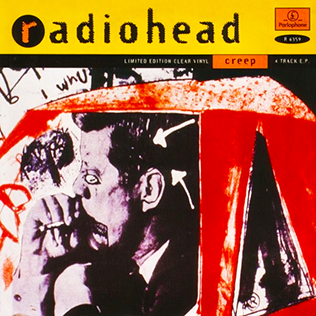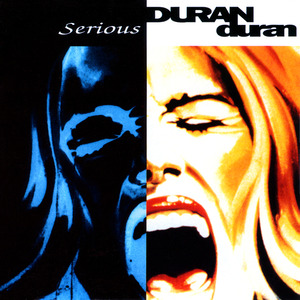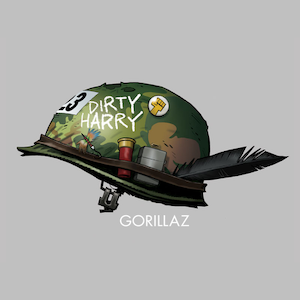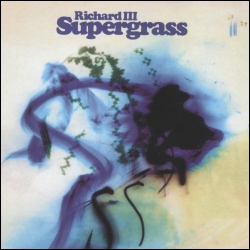
"Come Undone" is a song by English rock band Duran Duran, released in March 1993 by Parlophone as the second single from their seventh studio album, Duran Duran (1993). With their commercial and critical success reestablished by the previous single "Ordinary World", "Come Undone" continued to showcase more of the band's entry into the adult contemporary radio format.

"Creep" is the debut single by the English rock band Radiohead, released on 21 September 1992 by EMI. It was included as the second track of Radiohead's debut album, Pablo Honey (1993). It features "blasts" of guitar noise by Jonny Greenwood and lyrics describing an obsessive unrequited attraction.

"Fake Plastic Trees" is a song by the English rock band Radiohead, released on their second album, The Bends (1995). It was the third single from The Bends in the UK, and the first in the US. It reached the top 50 on the UK singles chart, the New Zealand Singles Chart, the US Modern Rock Tracks chart and the Canadian Rock/Alternative chart.

"Serious" is a song by the English pop rock band Duran Duran. It was released on 5 November 1990 as the second single from their sixth studio album, Liberty (1990), reaching number three in Italy and number 48 in the United Kingdom.

"Girls & Boys" is a song by English Britpop band Blur, released in March 1994 by Food Records as the lead single from the group's third studio album, Parklife (1994). The frontman of Blur, Damon Albarn wrote the song's lyrics with bandmembers Graham Coxon, Alex James and Dave Rowntree, while Stephen Street produced it.

"Dirty Harry" is a song from British alternative rock virtual band Gorillaz' second studio album, Demon Days (2005). "Dirty Harry" peaked at number 6 on the UK Singles Chart, as well as number 15 on the Australian singles chart.

"The Hardest Part" is a song by British rock band Coldplay. It was written by all four members of the band for their third album, X&Y. A piano-based ballad song, it begins with a piano melody, followed with electric guitar lines, that accompanies slow-tempo drumming.

"Just" is a song by the English rock band Radiohead, included on their second album, The Bends (1995). It features an angular guitar riff played by Jonny Greenwood, inspired by the band Magazine. It was released as a single on 21 August 1995 and reached number 19 on the UK singles chart. In 2008, "Just" was included in Radiohead: The Best Of. The English producer Mark Ronson released a cover version on his 2008 album Version.

"Too Much Love Will Kill You" is a song written by British guitarist Brian May of Queen, Frank Musker and Elizabeth Lamers. The song reflected the breakdown of May's first marriage and attraction to his future wife, Anita Dobson. It was first recorded by Queen around 1988 or before, and was intended to be on the band's The Miracle album in 1989, but did not make the cut due to legal disputes following the band's decision that all songs on the album would be written by the group as opposed to individuals.

"On Your Own" is a song by English rock band Blur. It was released as a single on 16 June 1997 from the band's self-titled album (1997). It charted at number five on the UK Singles Chart. Although it was not released under the Gorillaz name, Damon Albarn, frontman of both musical projects, has since referred the song as 'one of the first ever Gorillaz tunes'.

"Violence of Summer (Love's Taking Over)" is a song by the English pop rock band Duran Duran, released on 23 July 1990 as the first single from their sixth studio album, Liberty (1990). The single reached number two in Italy but fared poorly in other countries, reaching number 20 in the United Kingdom and number 64 in the United States.

"Are You Ready" is a song by Australian rock band AC/DC. It is featured on the band's 1990 album The Razors Edge. A live version of the song recorded on the tour of the same name appeared on one of AC/DC's two live albums of 1992, Live: 2 CD Collector's Edition. The song peaked at number one in New Zealand, becoming the band's only number-one hit there, and has been certified gold for sales exceeding 5,000. The song also peaked at number 16 on the US Billboard Album Rock Tracks chart, number six in Ireland, number 14 in Finland, and number 18 in Australia. Music & Media magazine called the song "the best example of a rhetorical question". "Are You Ready" was used as the official theme for WWE SmackDown on Fox.

"Stop!" is a song by English singer-songwriter Sam Brown from her debut studio album of the same name (1988). It was released in May 1988 by A&M, and written by Brown, Gregg Sutton and Bruce Brody. "Stop!" reached number 52 on the UK Singles Chart when it was first released. Following its re-release on 23 January 1989, the song peaked at number four, becoming Brown's highest-charting single, and spending 12 weeks on the chart. Additionally, "Stop!" topped the charts in Belgium, Iceland, the Netherlands and Norway, while reaching the top five in Australia, Austria, Finland, France, Ireland and Switzerland. The song was featured in the soundtrack to the 1992 film Bitter Moon.

"Richard III" is a song by English rock band Supergrass. It was the second single released from the band's second album, In It for the Money (1997), after "Going Out", which was released over a year before. "Richard III" was released in March 1997 and reached number two on the UK Singles Chart on 6 April, their highest placing since "Alright" / "Time" in 1995, which also peaked at number two. The song also reached number 21 in Iceland and number 30 in Ireland.

"How Can You Expect to Be Taken Seriously?" is a song by English synth-pop duo Pet Shop Boys from their fourth studio album, Behaviour (1990). It was released in the United Kingdom on 11 March 1991 as a double A-side with "Where the Streets Have No Name ", serving as the third single from Behaviour. For the single, Brothers in Rhythm remixed the track. The track was subsequently released as a solo single in the United States and France; it peaked at number 93 on the US Billboard Hot 100. As "Being Boring" and "It's Alright" were not released in the US, tracks from these releases were used on a number of US releases. The accompanying music video received heavy rotation on MTV Europe.

"New York City Boy" is a song by English synth-pop duo Pet Shop Boys, released on 22 September 1999 as the second single from their seventh studio album, Nightlife (1999). In the UK, the single peaked at number 14 on the UK Singles Chart. It also reached the charts in numerous European countries, peaking at number three in Spain, and number four in Finland and Hungary. In the US, the song hit number one on the Billboard Hot Dance Club Play chart and number 53 on the Billboard Hot Singles Sales chart.

"Where the Streets Have No Name (I Can't Take My Eyes Off You)" is a song by English synth-pop duo Pet Shop Boys. The song is a medley of U2's "Where the Streets Have No Name" and "Can't Take My Eyes Off You", a 1967 song by Frankie Valli, though in an arrangement informed by the 1982 disco version of the song by the Boys Town Gang rather than the original. The song accompanied "How Can You Expect to Be Taken Seriously?", the third single from their fourth studio album, Behaviour (1990), as a double A-side in the United Kingdom (both singles were released separately in the United States). Released in March 1991 by Parlophone, the song became the duo's 15th consecutive top-20 entry in the UK, peaking at number four on the UK Singles Chart.

"Give It Up" is a song by English band Talk Talk, released by Parlophone in 1986 as the third single from their third studio album The Colour of Spring. The song was written by Mark Hollis and Tim Friese-Greene, and produced by Friese-Greene. "Give It Up" peaked at number 59 in the UK Singles Chart.

"I Believe in You" is a song by English band Talk Talk, released by Parlophone in 1988 as the only single from their fourth studio album Spirit of Eden. The song was written by Mark Hollis and Tim Friese-Greene, and produced by Friese-Greene. "I Believe in You" peaked at number 85 in the UK Singles Chart.

"I Don't Believe in You" is a song by English band Talk Talk, released by Parlophone in 1986 as the fourth and final single from their third studio album The Colour of Spring. The song was written by Mark Hollis and Tim Friese-Greene, and produced by Friese-Greene. "I Don't Believe in You" peaked at number 96 in the UK Singles Chart.




















